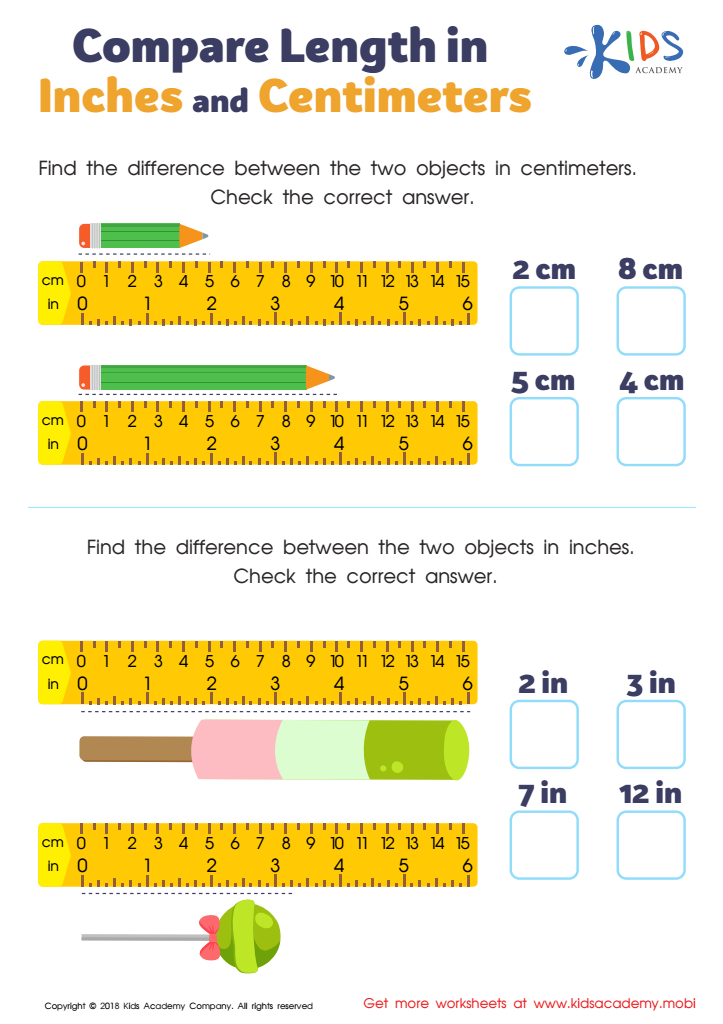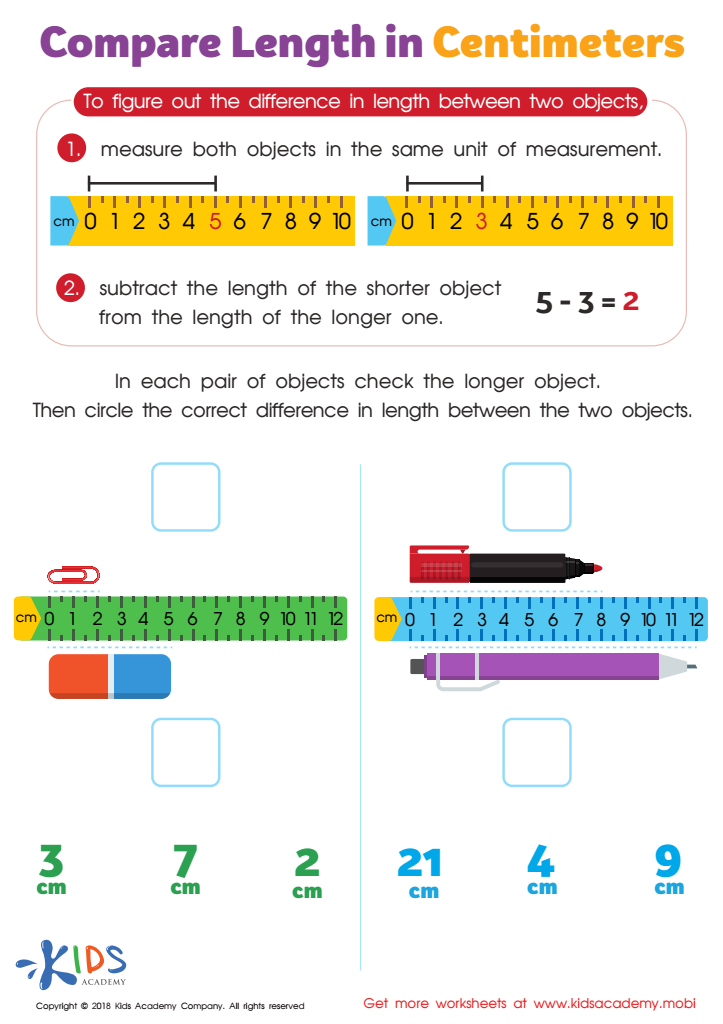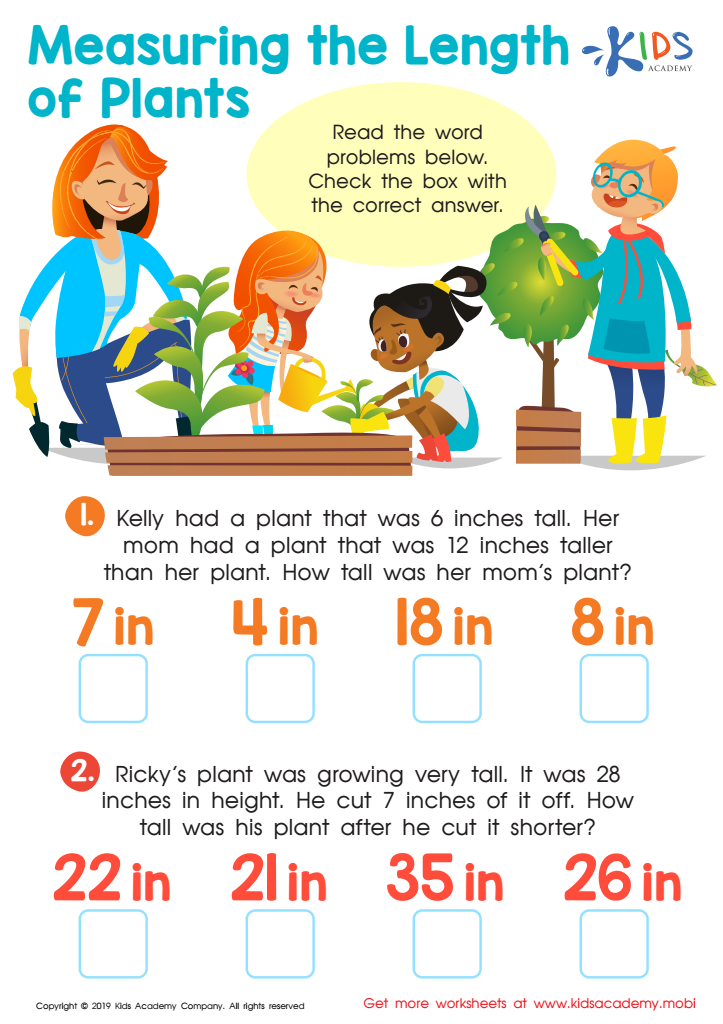Understanding measurements Comparing Numbers Worksheets for Ages 8-9
3 filtered results
-
From - To
Explore our "Understanding Measurements: Comparing Numbers Worksheets" designed for children aged 8-9. These engaging, printable worksheets help students develop essential math skills by focusing on the relationship between measurement and numerical comparison. Your child will learn how to gauge different units of measurement, enhancing their ability to analyze and compare quantities effectively. With a variety of interactive exercises and illustrations, these worksheets not only make learning fun but also reinforce classroom concepts, encouraging independent practice. Perfect for home or classroom use, they enable young learners to build confidence in their measurement understanding while strengthening their number comparison skills. Get started today!


Compare Length in Inches and Centimeters Worksheet


Compare Length in Centimeters Worksheet


Measuring the Length of Plants Worksheet
Understanding measurements and comparing numbers is crucial for children aged 8-9 as it lays a foundational skill set essential for their academic and everyday lives. At this age, kids are often introduced to concepts of length, weight, volume, and time, which makes grasping these measurements vital for problem-solving and logical reasoning.
Critical thinking skills also strongly develop at this stage, helping children not only perform mathematical calculations but also understand the relationships between different quantities. This skill enhances their ability to make informed decisions—whether it's measuring ingredients for a recipe, comparing prices while shopping, or understanding sports statistics.
Furthermore, strong measurement comprehension fosters confidence in mathematical abilities. When students are comfortable engaging with numbers and measurements, they are likely to exhibit greater enthusiasm and curiosity towards learning. Parents and teachers play a crucial role in this Development—and emphasizing real-life applications makes the learning experience relevant and exciting.
Ultimately, mastery of measurements and comparison of numbers empowers children to navigate their world effectively, equipping them with lifelong skills while building a strong base for future mathematical concepts and challenges. Thus, actively supporting this learning process is essential for parents and teachers alike.
 Assign to My Students
Assign to My Students
















